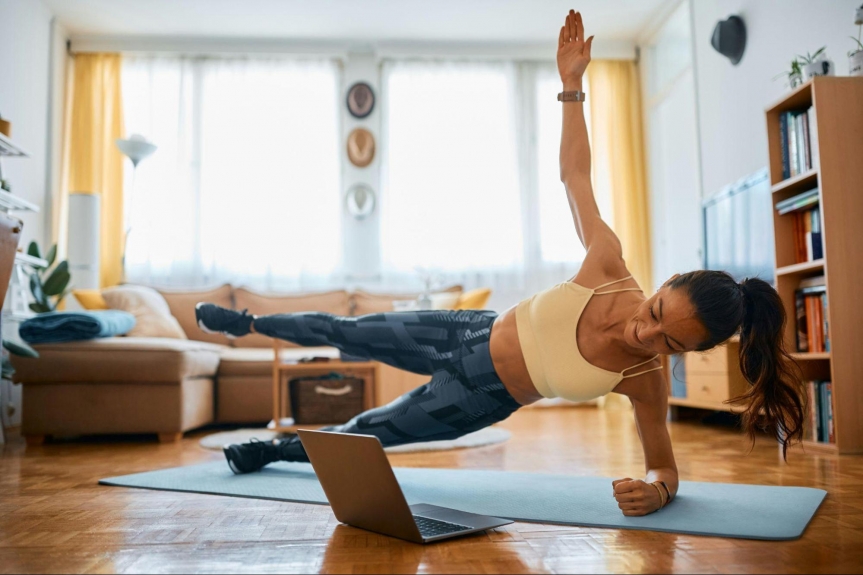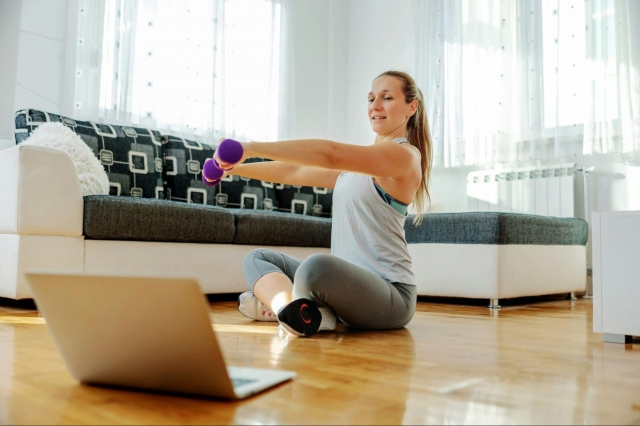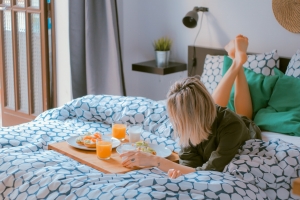For most people, daily movement begins with a desire to feel better physically, to build strength, increase flexibility, or improve posture. But over time, something deeper begins to unfold. The body becomes a gateway to more than just fitness. It becomes a space where mental clarity, emotional balance, and a sense of self begin to thrive.
This quiet transformation is at the heart of platforms like Flo Pilates, which bring movement into the lives of people seeking more than sweat. They serve those who want to feel strong and centered, even in the smallest of spaces. Whether you're stretching at sunrise or squeezing in a short flow between meetings, what starts as a fitness habit often grows into something far more profound.
Movement as a pathway to presence
We often spend our days racing between tasks, caught in endless to-do lists. Movement offers a rare opportunity to pause and pay attention, not just to how we move, but to how we feel as we move. Every time you stretch your arms overhead, shift your weight, or breathe deeply, you bring yourself into the moment.
This act of tuning into your body helps interrupt the constant mental chatter. Your muscles, joints, breath, all bring your awareness back from worry or distraction to the here and now. Over time, this daily returning fosters a deeper sense of mindfulness, even outside of your movement practice.
Movement and mood
Movement and mood are inseparable. When your body moves, your brain releases feel-good chemicals. That's the science. But emotionally, movement also unlocks a different kind of reset. It allows space to breathe, to shake off stagnant energy, and to process feelings without words.
The act of moving daily, even gently, can reduce stress, ease anxiety, and provide a greater sense of emotional regulation. What begins as a stretch becomes a way of saying, "I'm here, I'm listening, and I matter."
How routine builds resilience
It's not about big dramatic workouts. It's about consistency. Making movement a non-negotiable part of your day teaches resilience. You show up for yourself, again and again. Even when it's hard. Even when it's inconvenient.
That small act builds mental strength, an internal trust that says, “I follow through.” Over time, this trust extends into other parts of life. You begin to approach challenges with more confidence and calm.
Movement supports relationships
Mindful movement doesn't just change how you feel about yourself, it shifts how you relate to others. When your nervous system is calm, you communicate more clearly. You listen more fully. You have more patience, more space, more presence.
Even simple movements practiced with someone else can deepen bonds. A walk with a partner, a shared breathing practice, or even a short flow session side by side, these moments build connection that feels real, embodied, and grounded.
Creativity in motion
So many creative breakthroughs happen away from the desk. When you're moving, your mind softens, expands, and becomes more receptive to ideas. That's because movement disrupts mental rigidity. It invites fresh thinking, new perspectives, and curiosity.
You might not sit down to move with the intention of solving a problem, but often, your body will guide your mind to unexpected clarity. This is especially true with rhythmic, flow-based movement. It creates a state where ideas move as freely as muscles.
Small spaces, big impact

One of the most empowering truths about movement is that it doesn't require much. A few square feet. A soft mat. A reformer that folds away. That's it.
This is where the innovation behind compact and intuitive fitness gear becomes so valuable. Brands like Flo Pilates understand that people need to move within the real limitations of their lives, small apartments, busy schedules, limited energy. They've designed tools that remove barriers instead of creating more of them.
It's in this accessibility that real change happens, not in high-tech gym environments, but in bedrooms, living rooms, balconies, and quiet corners where people show up for themselves.
From movement to mindful living
As movement becomes more integrated into your daily rhythm, something shifts. You begin to make other mindful choices, about what you eat, how you rest, how you spend your time. You notice how your environment affects you. You listen to your energy, rather than overriding it.
The more you move with awareness, the more life begins to feel lived, not rushed through. You move with intention, and that intention ripples into how you speak, how you think, and how you relate.
A life that feels aligned
Ultimately, daily movement is about alignment. Not just physical alignment, but emotional, mental, and even spiritual alignment. It's about creating a life that feels like it's working with you, not against you.
This doesn't happen overnight. But with each session, each breath, stretch, step, lift, or pause, you build a more honest relationship with yourself. And from there, everything becomes a little more possible.
You don't need perfection. You don't need a perfect body or perfect routine. You just need to begin. To move as you are, where you are. To create the space, even in the smallest ways, for motion, awareness, and joy.
That's what daily movement really offers: a chance to return, not just to your body, but to yourself.






